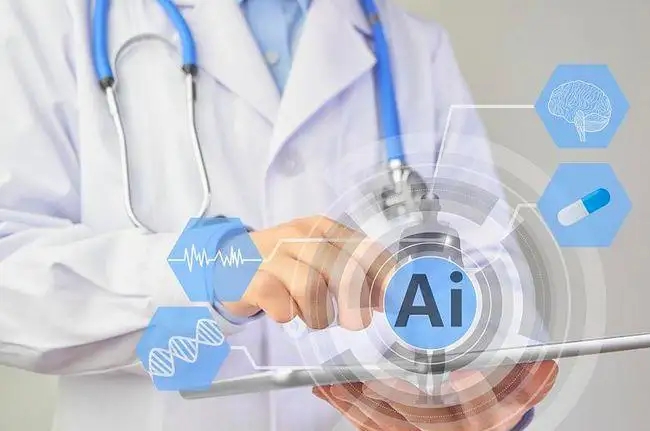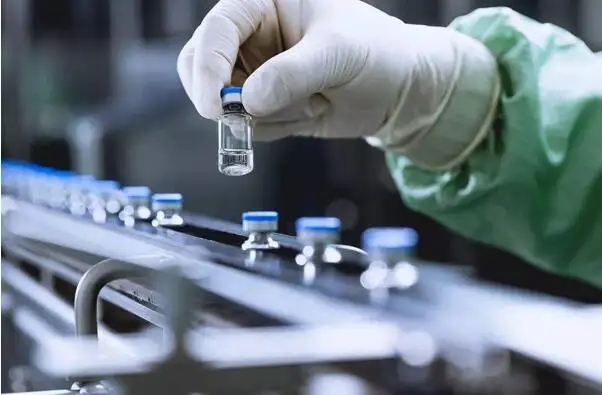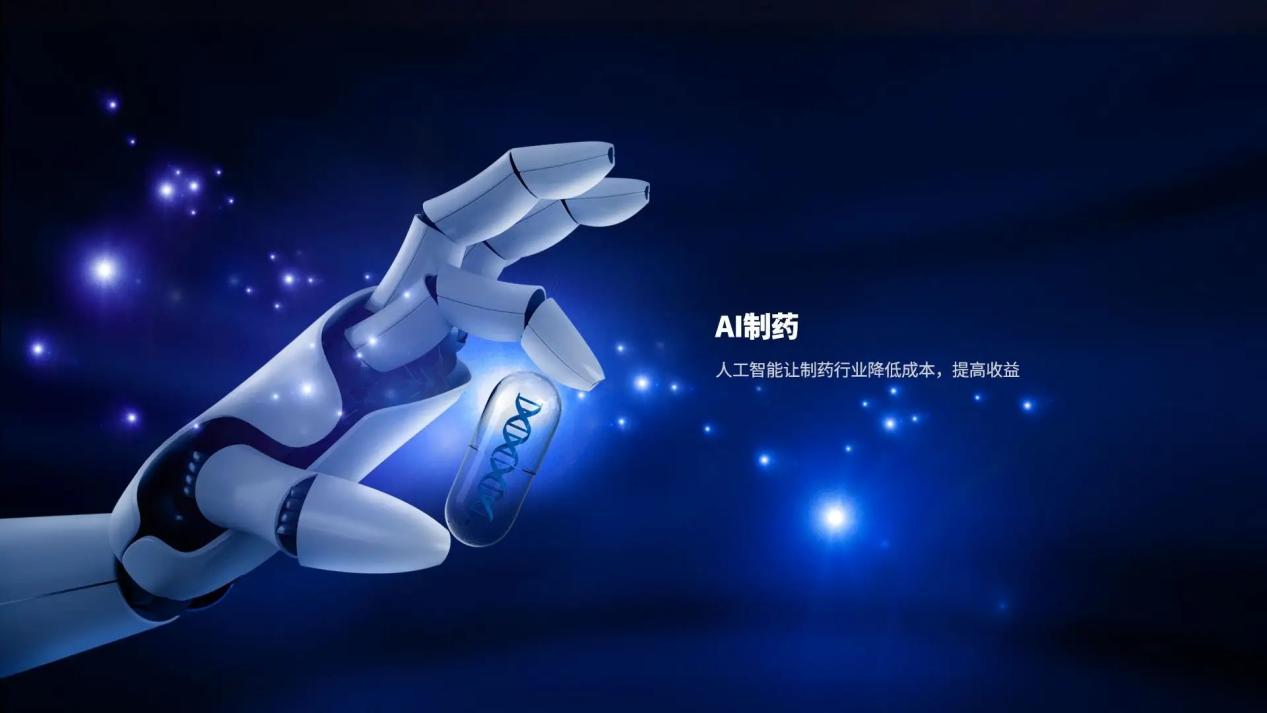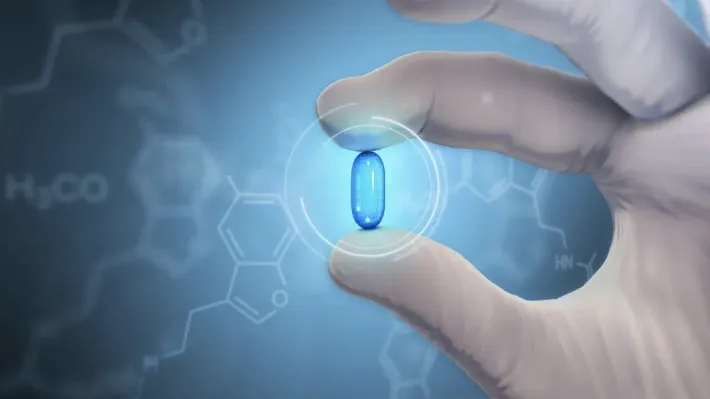
Recently, several major events have occurred in the AI pharmacy circle.
The first thing: Sanofi and Exscientia, a British drug research and development AI technology service provider, have reached a huge AI pharmaceutical order worth 33.1 billion yuan.
The second thing: Insilicon announced the discovery of new drugs twice within half a year, and took the lead in entering a new stage of clinical trials.
The third item: AIONLabs, an AI drug research and development laboratory jointly established by pharmaceutical giants such as AstraZeneca, Merck, Pfizer, and Teva, announced its official launch.
If 2020 is the first year of the outbreak of AI pharmaceuticals and achieved a breakthrough from "0" to "1", then after two years of continuous warming, this track has moved from "1" to "10" by leaps and bounds ” new stage. Many industry experts believe that AI pharma has redefined the pharmaceutical process and brought a huge change to the entire pharmaceutical industry.

▎The end of capital, the outlet has arrived
First, let's figure out what AI pharma is.
Usually, it takes more than ten years or even decades for a new drug to be discovered and marketed, and it costs billions of dollars. Even with such a high cost, the failure rate is more than 90%.
High effort, high risk, and low rate of return have always been unspeakable pains for pharmaceutical companies. And AI pharma, what it wants to solve is the problem of pharmaceutical companies.
AI engineers input the massive data accumulated in the research and development process in the past decades into the program, and use artificial intelligence to screen new therapeutic targets and new drugs in these data, which can greatly reduce the time and cost of new drug development. In February of this year, AI pharmaceutical upstart Insilicon announced that they had developed a new target for idiopathic pulmonary fibrosis in just 18 months and invested US$2.6 million.
The emergence of AI technology has made traditional experiments no longer the only option. The data-based artificial intelligence pharmaceutical research and development paradigm essentially uses machines to learn and mine data independently, and summarize and summarize the rules of drug research and development other than expert experience. Optimize all aspects of the entire drug development process.
It not only greatly improves the efficiency and success rate of drug research and development, but also effectively reduces research and development costs and trial and error costs. Compared with traditional pharmaceutical companies, such a low-cost, high-success rate pharmaceutical speed can simply be "confined".

▎"AI + drug innovation" market is hot
TechEmergence research found that the rate of new drug development with artificial intelligence increased by 2%.
After the AI technology matures, it is expected to reduce the cost of new drug research and development by US$28 billion per year. Starting from 2020, the popularity of AI in the field of drug research and development will continue to rise.
According to Zhiyan Consulting data, in 2020, the domestic AI+pharmaceutical field financing amount will reach 3 billion yuan, a year-on-year increase of 355%. .
The international market is also hot. In 2021, a total of 77 financing events will take place in the global Al+ pharmaceutical industry, an increase of 24 from the previous year, a year-on-year increase of 45.28%; the cumulative financing amount will reach 4.564 billion US dollars, an increase of 2.756 billion US dollars from the previous year, a year-on-year increase of 152.43% ; The number of financing events and the amount of financing jointly refreshed the financing record over the years.
In January 2022, Sanofi announced that it will cooperate with AI pharmaceutical Exscientia to develop as many as 15 drug candidates in the field of oncology and immunology, with a transaction value of up to 5.2 billion US dollars. "AI + drug research and development" has once again attracted widespread attention.

▎The field of AI pharmaceuticals is expanding in the frontier
A clear trend is that Google is crowded around Google with "non-pharma" tech giants such as Microsoft, Oracle, Nvidia, Amazon, and China's Tencent, Baidu, ByteDance and Huawei. With the advantages of computing power and algorithms, they bowed into the game with the attitude of half an expert.
Among them, ClaraDiscovery launched by NVIDIA, which accelerates drug discovery through GPU, has attracted leading AI drug discovery companies represented by Schrodinger. Another prime example comes from Moderna, which used Amazon's AWS cloud platform to speed up its drug development process, successfully developing a cancer vaccine in just 40 days.
Domestic BAT giants have also begun to recruit high-paying talents at the intersection of medicine and algorithms. Huawei has offered the highest annual salary of over one million yuan for the position of drug R&D algorithm engineer. Tencent and Baidu even established their AI pharmaceutical companies, Yunshen Zhiyao and Baitu Biotechnology, respectively.
Given that many pharmaceutical giants already have AI drug research and development departments, since then, the three main areas of AI pharmaceuticals have gradually become clear, including AI pharmaceutical start-ups, technology giants and pharmaceutical giants. At the same time, in 2021, the popularity of this field in China will continue to rise, and the scale of investment and financing will reach a new high, exceeding 8 billion yuan.
For a period of time in the future, AI pharmaceuticals will continue to break through and evolve under the two paradigms of data-driven and model-driven. The essence of AI pharmacy is still pharmacy, and whoever can make new drugs has the right technology.
This is also the only evaluation criterion and (investment) logic now.





